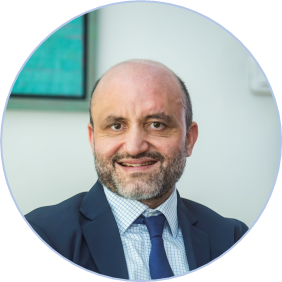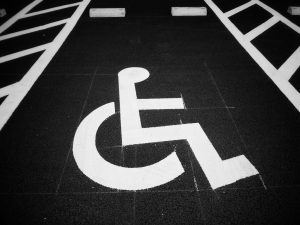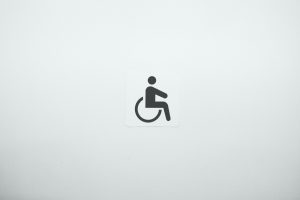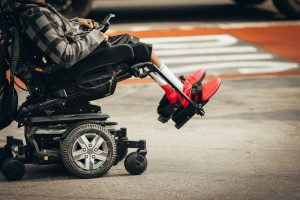08 Feb Why disability inclusion is more important than ever in the time of COVID-19
COVID-19 has been devastating for humanity. There are few people who have been untouched by the pandemic, and mental health and wellbeing have been adversely affected for many. However, seen through the lens of disabled people, the pandemic’s impact has been even more profoundly difficult. In so many ways, the pandemic has increased the sense of isolation and exclusion suffered by people with disabilties. Here we would like to talk about disability inclusion.
COVID-19 era statistics show urgent need for disability inclusivity
In the UK, more disabled people (62% in September 2020 according to the Office for National Statistics, ONS) than non-disabled people report COVID-19 negatively impacting their wellbeing. And while every one of us has had to adjust to the impact of the pandemic on the way we live, work and interact with other people, the negative effects are more profound for people living with disabilties.
For disabled people living in conflict zones or countries that were already impoverished and offering little support, the pandemic has been catastrophic. People with disabilities living in war torn regions were already up against severely restricted access to healthcare, threats to their security and marginalisation by society.
In some regions, there are still outdated societal assumptions and misconceptions regarding disabilities that leads disabled people to be pushed to the side-lines. A more usual problem for disabled people in troubled regions is the restrictive environments that they are pushed into for ‘their own safety’.
And just when things were beginning to change through disability inclusion programmes around the world, the pandemic hit. With such fragile social freedom in place before COVID-19, many disabled people in hard hit countries risk being pushed even further to the edge of their communities.
Disabled people are in danger of becoming more marginalised
There are, of course, also specific health concerns for disabled people relating to COVID-19. These include people who are living with physical disabilities that negatively impact the function of major organs such as the lungs, or the immune system as a whole.
These factors can mean disabled people are more at risk from serious complications or death if they contract COVID-19. But perhaps a wider and more insidious problem for people living with disabilties around the world during the pandemic is that they face more seclusion, isolation and less support than ever.
Everything from playing sports, education, employment and socialising have been effectively shut down by COVID-19. And for disabled people who relied on these lifelines for social inclusion and to live their lives, this is obviously devastating. A bigger danger as the pandemic wears on around the world is that these doors will remain closed even after the virus is finally under control. Regions that were already struggling to deal with conflict and war and now are dealing with the pandemic are more at risk of dropping the inclusion of disabled people from their priority lists.
A holistic approach must be taken around the world to promote disability inclusivity
To stop this becoming a long-term step backwards towards inclusion for disabled people, every section of society must work together. This means employers, schools, healthcare providers, Governments and every other potential stakeholder in countries all around the world. We must all work together to continue pushing for prioritisation of disability inclusion. This can’t be left to regress even further due to the pandemic.
This isn’t just about creating a better world and more opportunities for people living with disabilties, but society as a whole. More than a billion people around the world are disabled. There is an immense amount of potential within this sector of the global population. If we, as a global society, allow this potential to be ignored and stifled then we all lose out.
According to the United Nations (UN), 80% of the one billion disabled people in the world live in developing countries. Furthermore:
- Around 46% of people aged 60+ are living with disabilties.
- A fifth of women will likely experience a form of disability in their lifetime.
- One in every ten children lives with a disability.
- Disabled people represent 15% of the global population and they are among the worst hit by the pandemic.
Building more inclusive societies must be a priority
The UN’s Agenda for Sustainable Development 2030 focuses on the idea of leaving no-one behind. And this means acting on the rights of people living with disabilties to be welcomed into society in a fully inclusive way. Even in times of crisis, such as the pandemic, the UN is prioritising disability inclusion through various strategies.
COVID-19 is affecting the very core of local communities and regional societies. Inequalities that existed before the pandemic are becoming more entrenched by the day. Furthermore, new threats are emerging to disabled people in particular. The Secretary General of the UN outlined these in A Disability-Inclusive Response to COVID-19.
Creativity and commitment as well as teamwork and focus are all needed to address the barriers in the way of disabled people living their lives fully. There is also a valuable opportunity for countries to implement COVID-19 recovery plans that are fully disability inclusive.
We must build more accessible and inclusive societies as a base level. This should, of course, be carried out with lots of input and consultation with disabled people. Only then will we be creating a truly inclusive and fair global society, for all of our benefit.

Rouzbeh Pirouz is Co-Founder and Senior Partner at London-based Pelican Partners, a real estate and private equity investment firm. On this website you can find out more about his life, work and experience.





